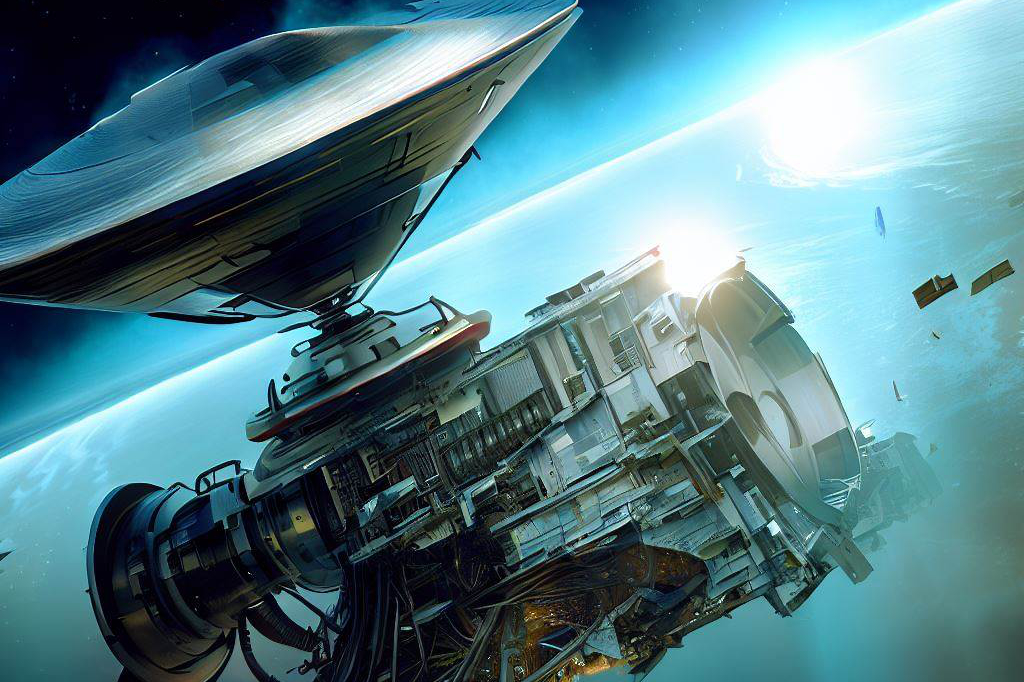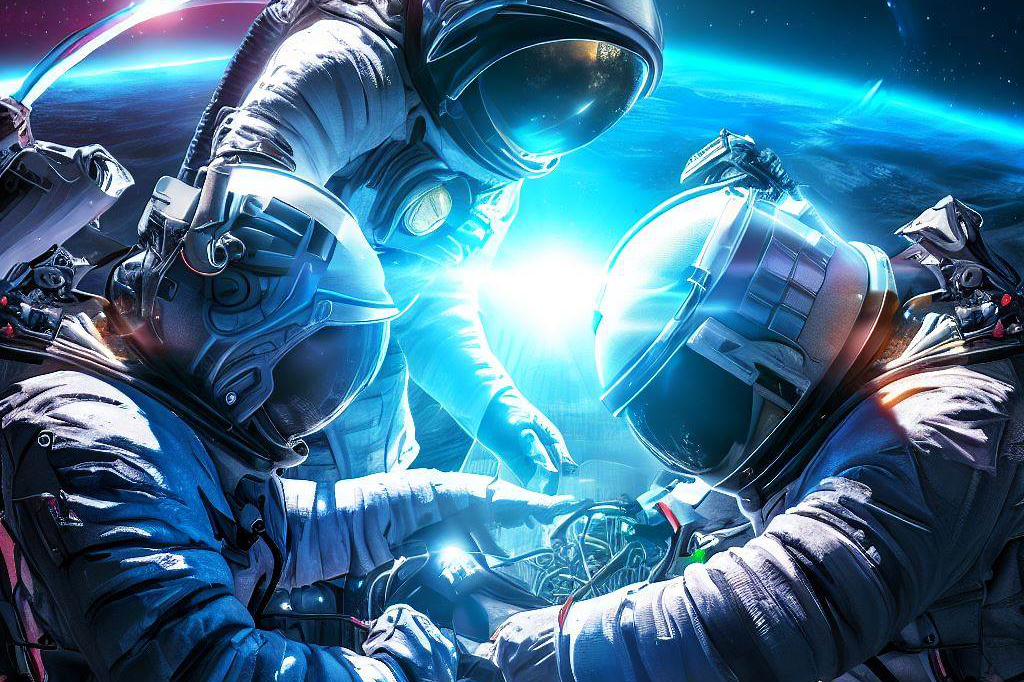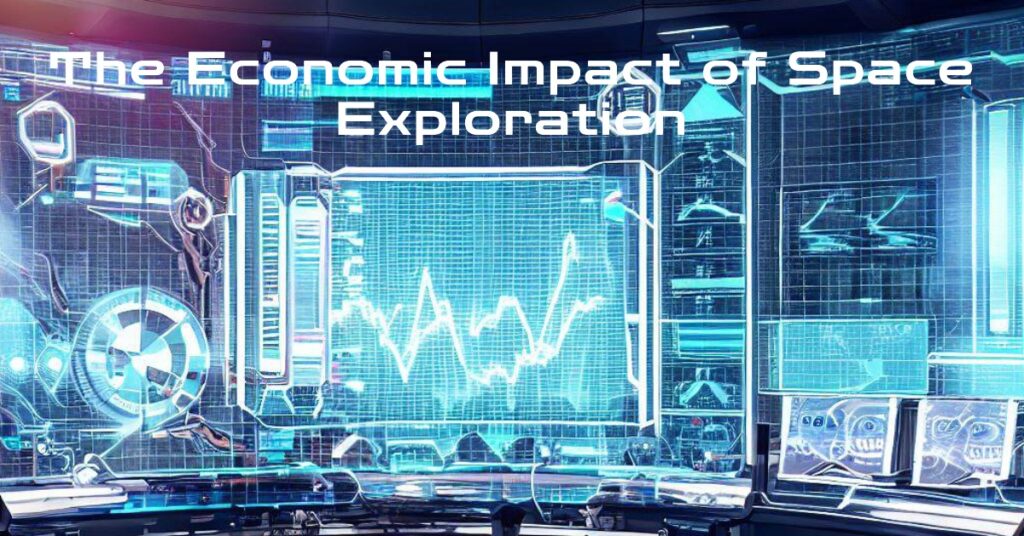The Economic Impact of Space Exploration
Space exploration has captivated the human imagination for centuries. Beyond its scientific and technological achievements, space exploration also yields significant economic benefits. The pursuit of exploring the unknown reaches of the cosmos has a profound impact on various sectors of the economy. In this article, we will delve into the ways in which space exploration contributes to the economy and drives innovation on Earth.
1. Job Creation and Industry Growth
One of the most tangible economic impacts of space exploration is job creation. The space industry provides employment opportunities for a diverse range of professionals, including scientists, engineers, technicians, and support staff. As governments and private companies invest in space programs, the demand for skilled workers in related fields grows, leading to the creation of new jobs.
Furthermore, space exploration stimulates the growth of related industries. Aerospace companies, satellite manufacturers, telecommunications providers, and research institutions all benefit from the technological advancements and discoveries made in space exploration. This symbiotic relationship between the space sector and other industries fosters economic growth and innovation.
2. Technological Advancements and Spin-off Technologies

Space exploration drives technological advancements that have far-reaching implications beyond space itself. The challenges faced in space missions often necessitate the development of cutting-edge technologies, which subsequently find applications in various sectors on Earth.
For example, the need for lightweight and heat-resistant materials for spacecraft has led to the creation of new alloys and composites with improved properties. These materials have found uses in industries such as aviation, automotive, and manufacturing, enhancing efficiency and performance.
Additionally, advancements in satellite technology have revolutionized communication, navigation, and weather forecasting systems. Satellites provide vital data for industries like agriculture, logistics, and disaster management, enabling better decision-making and resource optimization.
3. Economic Spin-offs and Commercialization
Space exploration opens up new opportunities for commercial ventures and entrepreneurship. The development of space tourism, for instance, has the potential to become a lucrative industry, offering experiences beyond the confines of Earth’s atmosphere. Companies like SpaceX and Blue Origin are actively working on making space tourism a reality, attracting investments and generating revenue.
Furthermore, the commercialization of space technologies and services contributes to economic growth. Satellite communications, Earth observation data, and global positioning systems have become vital tools for businesses worldwide. They enable seamless global connectivity, remote sensing capabilities, and precise navigation, all of which drive economic activities and provide commercial opportunities.
4. Scientific Research and Innovation

Space exploration fuels scientific research and fosters innovation. The pursuit of understanding our universe leads to discoveries that expand our knowledge and push the boundaries of human understanding. Scientific breakthroughs made in space exploration often have applications in multiple disciplines, spurring innovation across industries.
For example, research on microgravity conditions in space has yielded valuable insights into biological processes and the behavior of materials. This knowledge has practical applications in fields such as medicine, pharmaceuticals, and material science, enabling the development of novel therapies, drug delivery systems, and advanced materials.
Moreover, space missions serve as catalysts for interdisciplinary collaborations. Scientists, engineers, and researchers from various fields come together to solve complex problems, leading to new ideas, methodologies, and technologies that have far-reaching impacts on society and the economy.
5. Inspiration and Education
Space exploration captivates the imagination of people of all ages and backgrounds, inspiring future generations of scientists, engineers, and innovators. The awe-inspiring nature of space missions sparks curiosity and fuels the desire for knowledge and exploration.
Investments in space education programs, public outreach initiatives, and STEM (Science, Technology, Engineering, and Mathematics) initiatives have a profound impact on education and workforce development. By nurturing an interest in space and science-related subjects, these programs contribute to a well-prepared and skilled workforce, ready to tackle the challenges of the future. A scientifically literate and technologically skilled workforce is essential for driving innovation and economic growth in a rapidly evolving world.
6. International Collaboration and Diplomacy

Space exploration serves as a platform for international collaboration and diplomacy. Space agencies from different countries often collaborate on missions, sharing expertise, resources, and costs. These collaborative efforts strengthen diplomatic relations and foster a sense of global cooperation.
International collaborations in space exploration create opportunities for knowledge exchange, cultural understanding, and the pooling of resources. Such collaborations also provide a platform for joint research and development projects, benefiting participating nations and contributing to the advancement of scientific knowledge.
Additionally, space exploration can serve as a diplomatic tool, promoting goodwill and fostering peaceful relations between nations. Collaborative space missions and joint projects demonstrate the power of cooperation and the shared goals of exploring the unknown.
7. Spin-off Innovations and Entrepreneurship
The pursuit of space exploration often leads to the creation of spin-off innovations and entrepreneurial ventures. Technologies and solutions developed for space missions find applications in diverse sectors, giving rise to new businesses and industries.
For example, advancements in miniaturized satellite technology have led to the emergence of the small satellite industry. These small satellites, often referred to as CubeSats, are cost-effective and offer opportunities for various applications, such as Earth observation, communication, and scientific research. The growth of the small satellite industry has sparked entrepreneurship and innovation, attracting investment and generating economic activity.
Furthermore, the challenges faced in space exploration, such as sustainable resource utilization and closed-loop life support systems, drive the development of innovative solutions with applications on Earth. These solutions contribute to the growth of green technologies, sustainable practices, and the development of clean energy sources.
Going Beyond
Space exploration goes beyond the quest for scientific knowledge; it has a profound impact on the economy. The economic benefits of space exploration are evident through job creation, technological advancements, commercialization, scientific research, education, international collaboration, and entrepreneurship.
As we continue to explore the cosmos and push the boundaries of human knowledge, we must recognize the significant economic value that space exploration brings. Investing in space programs and fostering collaboration between governments, industries, and academia is crucial for harnessing the full potential of space exploration and reaping its economic rewards.
In an era of rapid technological advancements and global challenges, space exploration remains a catalyst for innovation, economic growth, and the betterment of society. By continuing to support and invest in space exploration, we pave the way for a future where the economic benefits of our endeavors in space reverberate across industries, stimulate growth, and inspire the next generation of pioneers.
Let us embrace the economic opportunities that lie within the vast expanse of the cosmos, knowing that our journey into space contributes not only to our understanding of the universe but also to the prosperity and advancement of our own planet.

C M, a seasoned editor, journalist, and consultant, is deeply fascinated by the convergence of technology, space, and the future of humanity.
With a particular interest in transhumanity, futurology, and the philosophical and ethical dimensions of these domains, C M serves as the lead contributor to SpaceSpotlight and TranscendSphere.
When not penning insightful articles on these rapidly evolving fields, C M indulges in their love for podcasts and books, proudly embracing their status as a ‘Happy Nerd Extraordinaire!’



